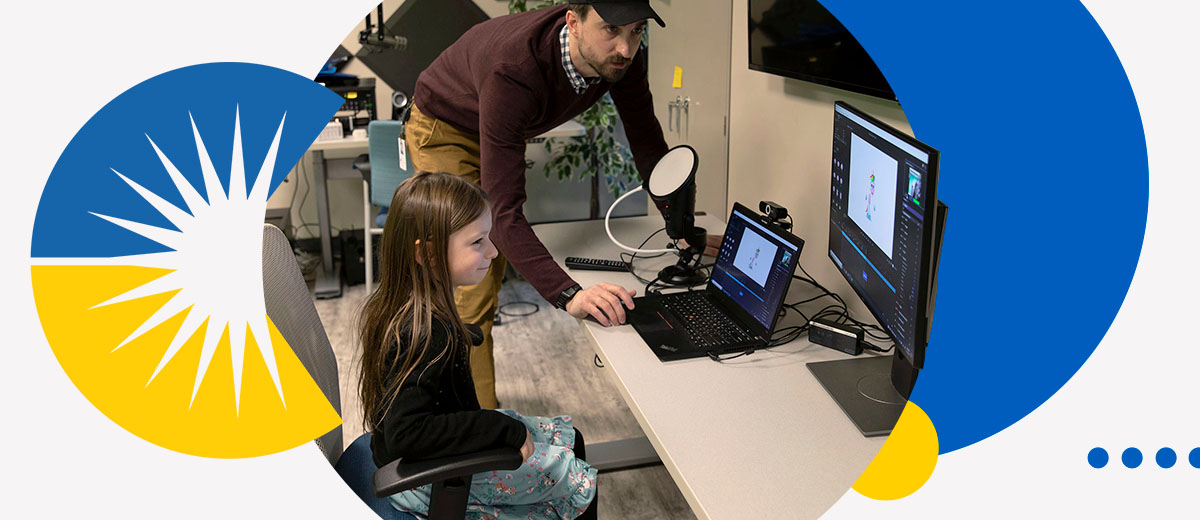Enrollment Now Open for Second Semester. Click Here
Enrollment Now Open for Second Semester. Click Here

Parents play an essential role in education, and parental involvement in academics significantly impacts academic success and individual development. Motivating your child to pursue education and view it as valuable can lead them to better grades, higher self-esteem, and stronger family relationships. From monitoring attendance to volunteering in a classroom, parents can take an active role in their child’s education.
Parental involvement in school can be tremendously beneficial. Students whose parents take an active role in their education are more likely to achieve higher grades, adapt well in school, develop better social skills, and attend classes regularly. There are many forms of involvement, and each can significantly impact your child. From encouraging your student to pursue education to sitting with them to complete homework, you can guide your child’s success and development, improving the following aspects.
Parental involvement in academic success leads students to reach higher grades. Parents who work with students to understand materials at home can motivate children to further connect with their studies and form a belief that education is relevant.
Many parents show interest in school during the preschool or elementary years, but have less involvement through middle and high school. However, parents’ influence on child education is vital at every age. Students are less likely to drop out of high school and are more likely to pursue higher education when their parents show interest in their grades.
Involved parents motivate their children to pursue education and affect their attitudes about the school environment. Students with supportive parents behave better in the classroom and show higher levels of self-esteem. These students are less liable to act out and more likely to have a consistent attendance record.
One form of parental involvement is communicating with teachers and instructors. When parents create a relationship with their child’s educators, both sides develop a deeper understanding of the student and erase misconceptions.
Parents show a greater appreciation for educators as they learn about the various challenges they face in the classroom. Teachers can also better understand the student because they become aware of home struggles or internal obstacles the student faces. The teacher-parent relationship enables the instructor to teach the student more effectively and encourages the parent to work on the proper materials at home.
Mothers and fathers can feel a sense of satisfaction when they contribute to their child’s education, and children get to spend additional time with their family members. Activities such as reading at home strengthen family relationships while building skills. Parents can work directly with their child’s studies, giving them a deeper understanding of the context and helping their child overcome challenges. Parents can also gain firsthand knowledge of the education their child receives and ensure it’s worthwhile.
Many parents want to help their students, but don’t know how or face other obstacles that make doing so challenging. Time is the most significant constraint for many families as parents determine the best time to work with their child, how to reconcile conflicting schedules, and whether they’re dedicating the same effort to each child.
Potential challenges to parental involvement include the following.
Many of the roadblocks parents face in involvement have a solution. Schools and parents should do all they can to improve academic success. For instance, schools must commit to delivering quality curricula and creating a supportive and engaging environment. Parents must monitor attendance, time management, and homework completion.
Though parents may not have time to sit with their children every day to complete assignments, they can show support in other ways. Getting involved with weekend school programs, meeting with teachers after hours, and asking what they’re learning about can show your child that you’re interested in their studies and want them to succeed.
Schools should discuss ways to increase parent involvement and communicate effectively with family members. They should commit to offering the resources each family needs and provide classroom or school opportunities to parents. Schools can implement home tutoring programs, provide transportation for students who stay after hours, and speak directly with parents to identify other necessary resources.
Additionally, schools should be open about intentions to include parents. Institution leaders can discuss ways for instructors to reach out to families and offer training sessions for staff and family members. Teachers could benefit from ongoing education that covers the importance of parental involvement, leading them to reevaluate their beliefs and provide opportunities for parents to get involved. Parents may benefit from courses in computer literacy, technology, monitoring academic success, and collaborating with teachers.
There are many ways parents can get active in their child’s education. There is no one-size-fits-all method, and each family may have a different approach that works best for them. You can encourage your child to view education as meaningful by playing to their strengths and the aspects of school they enjoy.
Parental forms of involvement include:
Commonwealth Charter Academy offers a family-centered education because we know parent involvement is as valuable as student involvement. We encourage parents to work with us to deliver a customized education that meets their children’s needs. We’ve seen firsthand that students can flourish when teachers and families come together.
Our online curricula encourage learners to work at their preferred pace and time. Students and parents can cooperate to develop a routine that fits their busy schedules. You can create a routine that maximizes your student’s potential and enables you to be available for schoolwork questions, material assistance, or anything else your child may need. Our learning management system, edioGO, provides parents with a way to stay up to date on their student’s progress.
Contact us for more information about our unique programming or how we get families involved. Become your child’s learning coach and inspire them to pursue a worthwhile education.
Enrollment Now Open for Second Semester. Click Here